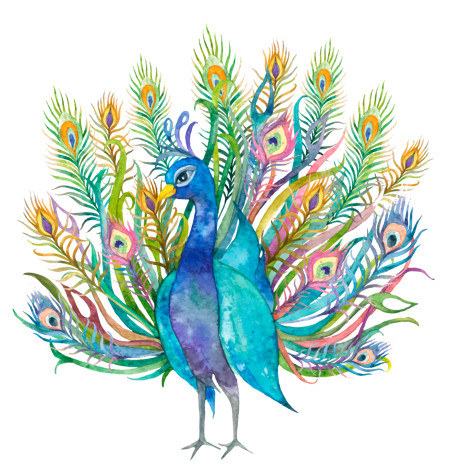OUR IDEAL:
Preserving Marwari Culture: The Importance of Educating Future Generations
The Marwari community boasts a rich cultural heritage, deeply rooted in traditions, values, and a unique language. As the world rapidly changes, there is a growing need to educate younger members of the community about these cultural aspects to ensure their preservation for future generations.
Traditions form the cornerstone of any culture, and Marwari traditions are no exception. From vibrant festivals like Teej and Gangaur to intricate wedding customs, these traditions not only showcase the richness of Marwari culture but also serve as a binding force for the community. Educating the younger generation about these traditions is crucial, as it helps them understand their roots and fosters a sense of pride in their cultural heritage.
Values such as respect for elders, family unity, and community welfare are deeply ingrained in Marwari culture. These values play a pivotal role in shaping individuals' characters and their outlook towards life. By imparting these values to the youth, we ensure that these timeless principles continue to guide our community's ethos in the future.
Language is another vital aspect of Marwari culture that needs to be preserved. The Marwari language is not just a means of communication; it is a repository of our culture, containing within it the wisdom and traditions of our ancestors. By educating our youth about the importance of the Marwari language, we ensure its survival and relevance in a rapidly changing world.
One of the most effective ways to educate younger members of the Marwari community about traditions, values, and language is through schools and cultural programs. Schools can incorporate Marwari language classes and cultural education into their curriculum, while cultural programs can provide a platform for showcasing Marwari traditions through music, dance, and drama.
In addition to formal education, it is essential for parents and elders in the community to actively involve their children in cultural activities and rituals. This hands-on experience not only helps children understand the significance of their culture but also creates lasting memories that they will cherish into adulthood.
As we look towards the future, it is imperative that we take concrete steps to educate the younger generation about Marwari traditions, values, and language. By doing so, we ensure that our cultural heritage remains alive and thriving for generations to come. It is a responsibility that we owe to our ancestors, our community, and most importantly, to the future of Marwari culture.


Importance of Preserving Marwari Culture
The preservation of Marwari culture is not just an act of safeguarding traditions but a necessity for maintaining the unique essence of a community that has contributed immensely to India’s heritage and global cultural diversity. Below, we outline the significance and reasons why this preservation is imperative, along with suggestions for actionable measures.


1. Strengthening Cultural Identity
Connection to Roots: Preserving Marwari traditions allows individuals to maintain a sense of belonging and pride in their ancestry. This connection reinforces a strong personal and collective identity.
Cultural Unity: Shared customs, languages, and festivals serve as unifying factors for Marwaris across the globe, fostering community bonds and solidarity.
2. Promoting Diversity
Cultural Richness: Marwari culture adds to the rich mosaic of global traditions, showcasing unique art, dance, music, and culinary practices.
Intercultural Dialogue: Highlighting Marwari traditions promotes mutual respect and understanding, fostering harmonious relationships between diverse communities.
3. Economic Significance
Traditional Crafts and Textiles: Marwari artisans are renowned for their intricate craftsmanship in jewelry, textiles, and pottery. Supporting these art forms preserves livelihoods and promotes economic growth.
Cultural Tourism: The Marwari way of life—from its havelis (mansions) to its festivals—has the potential to attract tourists, contributing significantly to local economies.
4. Language Preservation
Linguistic Heritage: The Marwari language is an intrinsic part of the culture. Its preservation ensures the survival of songs, proverbs, and stories unique to the community.
Knowledge Transmission: Maintaining the language facilitates the transfer of cultural wisdom and historical narratives to future generations.
5. Safeguarding Rituals and Festivals
Spiritual Values: Marwari festivals like Teej, Gangaur, and Diwali reflect spiritual depth and cultural vibrancy, fostering communal harmony and religious devotion.
Intergenerational Bonding: These occasions provide opportunities for families to come together, ensuring the transmission of values and traditions.
6. Historical Continuity
Archival Significance: The Marwari community has a rich history reflected in its architecture, literature, and manuscripts. Preservation efforts ensure that this heritage is not lost to time.
Educational Value: Documenting Marwari contributions to society, business, and art enriches history curricula and inspires pride among young Marwaris.
7. Culinary Heritage
Unique Flavors: Marwari cuisine, characterized by its use of local ingredients and innovative techniques, offers a culinary experience that is both flavorful and sustainable.
Health Benefits: Many traditional Marwari recipes are rooted in Ayurvedic principles, promoting both taste and wellness.
8. Adaptation to Modern Times
Cultural Evolution: By integrating traditional practices into contemporary lifestyles, Marwari culture remains relevant without losing authenticity.
Creative Inspiration: The rich tapestry of Marwari art and traditions can inspire modern designs, music, and literature, bridging the gap between old and new.
9. Preservation of Values and Ethics
Business Ethics: Marwari culture is synonymous with principles of trust, honesty, and philanthropy. These values provide timeless lessons for ethical entrepreneurship.
Family and Community: Respect for elders, emphasis on education, and a strong sense of responsibility are hallmarks of Marwari life that can guide societal development.
10. Addressing Cultural Erosion
Globalization: The homogenizing effects of globalization threaten unique traditions. Proactive efforts ensure that Marwari culture retains its individuality.
Urban Migration: As families move to urban areas, cultural practices risk fading. Preservation initiatives bridge the gap between rural traditions and urban lifestyles.
Conclusion
Preserving Marwari culture is not merely about looking back; it is about building a bridge to the future. By safeguarding traditions, language, and values, the community ensures its unique legacy enriches the world for generations to come. The responsibility lies with individuals, institutions, and policymakers to collaborate and make cultural preservation a shared mission.


